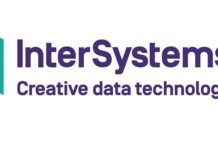St. Jude Medical, Inc.applauds the updated level of evidence for Fractional Flow Reserve (FFR)-guided treatment in the Guidelines on Percutaneous Coronary Intervention . The American College of Cardiology American Heart Association (AHA)/Society for Cardiovascular Angiography and Interventions (SCAI) guidelines upgrade the level of evidence for FFR, a physiological measure of coronary stenosis, from a "B" to an "A" because of new research conducted to determine its efficacy; the landmark FAME (Fractional Flow Reserve (FFR) vs. Angiography in Multivessel Evaluation) trial demonstrated improved outcomes for patients with multivessel coronary artery disease whose treatment was guided by St. Jude Medical FFR Measurement Systems rather than by standard angiography alone.
The ACC/AHA/SCAI guidelines, which are intended to assist healthcare providers in clinical decision making, now classify FFR as "Class IIa with level of evidence A." Level of evidence "A" is the highest level available, requiring the most clinical evidence, and is awarded only when data is derived from multiple populations and multiple randomized clinical trials or meta-analyses. The updated recommendation for FFR was issued in response to the important FAME trial data, which demonstrated many patient benefits, including a 34% reduced risk of combined death or myocardial infarction (heart attack) for those whose treatment was guided by St. Jude Medical's PressureWire Certus(TM) technology prior to coronary stenting rather than angiography alone.
The ACC/AHA/SCAI guidelines, which are intended to assist healthcare providers in clinical decision making, now classify FFR as "Class IIa with level of evidence A." Level of evidence "A" is the highest level available, requiring the most clinical evidence, and is awarded only when data is derived from multiple populations and multiple randomized clinical trials or meta-analyses. The updated recommendation for FFR was issued in response to the important FAME trial data, which demonstrated many patient benefits, including a 34% reduced risk of combined death or myocardial infarction (heart attack) for those whose treatment was guided by St. Jude Medical's PressureWire Certus(TM) technology prior to coronary stenting rather than angiography alone.
Because data show that having physiological lesion assessment available prior to placement of coronary stents helps physicians better determine which specific lesion or lesions are responsible for a patient's ischemia, a deficiency of blood supply to the heart caused by blood restriction, the guidelines suggest that FFR can be useful to optimize clinical outcomes. The recommendations supported by a level of evidence "A" state that FFR can be useful in assessing whether an intervention in a coronary lesion(s) is necessary, as an alternative to noninvasive functional testing, and to help assess intermediate stenosis in patients with anginal symptoms.
St. Jude Medical is dedicated to providing physicians with technologies that aid them in making the best treatment decisions for their patients," said Frank J. Callaghan, president of the St. Jude Medical Cardiovascular Division. "The higher level of evidence confirms what we have already known about FFR, that it is a technology that benefits patients, improves clinical outcomes and reduces the overall cost of treatment."
The FAME study was a randomized, prospective, multi-center trial which enrolled 1,005 patients with multivessel coronary artery disease. It compared outcomes for patients whose treatment was guided by FFR to those whose treatment was guided only by angiography. The 12-month results, published in the January 15, 2009 issue of the New England Journal of Medicine, demonstrated that instances of major adverse cardiovascular events (MACE), such as death, myocardial infarction or repeat revascularization, were reduced by 28% for patients whose treatment was guided by FFR rather than by standard angiography alone.
Two-year results presented as a late-breaking trial during the 2009 Transcatheter Cardiovascular Therapeutics (TCT) Conference demonstrated that patients who received FFR-guided treatment continued to experience improved outcomes over time, including a 34% risk reduction of death or myocardial infarction (heart attack). FFR-guided treatment was also demonstrated to be cost-saving, with a difference of about $2,000, or 14%, between total healthcare costs for the FFR-guided cohort and the group treated by angiography alone. These lower healthcare costs were a result of reduced procedural costs, reduced follow-up costs for major adverse cardiac events and shorter hospital stays.
St. Jude Medical's FFR Measurement System portfolio includes both the PressureWire Certus and the PressureWire Aeris(TM). The PressureWire Certus was the only FFR Measurement System used in the FAME trial; the PressureWire Aeris is the industry's only wireless technology available which requires no additional equipment or cabling in the cardiac catheterization laboratory.
About Fractional Flow Reserve (FFR)
Fractional Flow Reserve (FFR) is an index determining the functional severity of narrowings in the coronary arteries as measured by PressureWire Certus and PressureWire Aeris. FFR specifically identifies which coronary narrowings are responsible for significantly obstructing the flow of blood to a patients' heart muscle (called ischemia), and it is used by the interventional cardiologist to direct coronary interventions and assess results for improved treatment outcomes.
About St. Jude Medical
St. Jude Medical develops medical technology and services that focus on putting more control into the hands of those who treat cardiac, neurological and chronic pain patients worldwide. The company is dedicated to advancing the practice of medicine by reducing risk wherever possible and contributing to successful outcomes for every patient. Headquartered in St. Paul, Minn., St. Jude Medical employs more than 14,000 people worldwide and has four major focus areas that include: cardiac rhythm management, atrial fibrillation, cardiovascular and neuromodulation. For more information, please visit sjm.com .




















